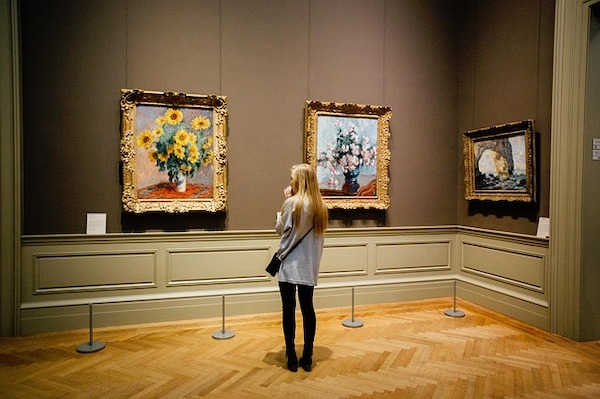Museums closed their doors as soon as the health crisis began... Very quickly, museums invested in social networks (Facebook, Instagram, Twitter, YouTube) and multiplied initiatives to ensure the continuity of their offers and maintain a link with the population.
The outline of an alternative museum model?
Mathilde Dougados and Bérénice Kübler, doctoral students in management at Aix-Marseille University (AMU), discussed these proposals and new ways of living the museum experience on May 13, in The Conversationabout these proposals and new ways of living the museum experience. Would they be "outlining a new path for the museums of tomorrow, that of the post-Covid-19 museum"?On the basis of a corpus of 78 French museum practices proposed online since the beginning of the containment, Mathilde Dougados and Bérénice Kübler note several recurring trends: the playfulness of the content disseminated (games, collages, quizzes, video games), the simplification and misappropriation of the museum object (photo contests, handicrafts and culinary arts), the demystification of the museum and its functioning (presentation of the backstage and the staff). "So many trends that echo the many modernist injunctions made to museums) among which stand out particularly that of photography, creativity and playfulness.
"Museums have never been so present or so inventive online," they conclude. "This unprecedented situation has led museums down a new path. With new forms of communication and dissemination, aimed at all types of audiences, the museum is reasserting its social role and demonstrating its creativity. While the future of cultural organizations remains uncertain despite the gradual deconfiguration of the country, are museum initiatives paving the way for an alternative, connected, entertaining, learning and creative museum model that is accessible to all? One thing is certain: museums have been able to bounce back and offer a wide and diverse range of activities during the lockdown, showing that art and museums are a possible refuge from the crisis.Référence :
Visiting remotely: what museum experience in the next world?
"The health crisis has produced a paradoxical effect on the museum sphere: we started to talk about museums as they had become inaccessible," observes, for his part, Gaëlle CrennMaitre de conférence Info-Com (University of Lorraine). "For the museums, whose social justification is based on the promise of an encounter, of a setting in presence with authentic objects of the heritage, the closing of the museum galleries represents a serious challenge. The Covid crisis deprives the public of physical access to the objects of its heritage, and consequently threatens the legitimacy of the institution.Gaëlle Crenn reminds us that the phenomenon of remote visit is not really new: live visit of an exhibition on Periscope, immersive virtual visits, virtual guided tour in an interactive immersive environment, animated by the presence of a guide, sequences of interpretation of the rooms of a museum by the curators filmed in situ, "filmed visit of the exhibition"...
"Insofar as the prospect of a return to "normal" is not a guarantee, it becomes interesting to look at the experience of the remote visit," observes Gaelle Grenn, who, in conclusion, outlines a research project."How does the remote visit transform the museum experience? Compared to the "in-person" visit, which dimensions of the "visit" are affected? Which devices are best able to promote access to culture? Finally, what are the options that make it possible to turn them into means of empowerment for visitors, that is to say, resources that can be mobilized, in complete autonomy, with a view to an emancipating exploration of ever more numerous cultural contents?"Référence :
On Saturday, June 11 and Sunday, June 12, 2016, the Museum of Arts and Crafts and the Club Innovation & Culture / CLIC France are organizing a Weekend dedicated in France to "heritage(s) in immersion". The objective of this weekend is in particular to test these new forms of mediation with future visitors to museums and monuments. Around a question "For you, how can virtual reality and immersion renew the museum and heritage experience?





